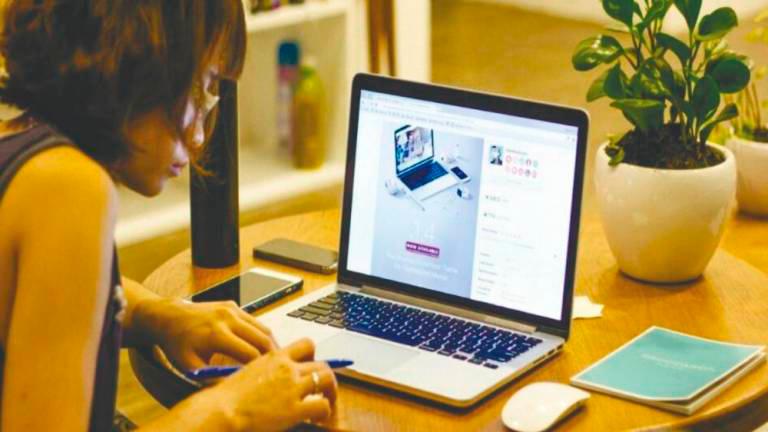PETALING JAYA: A new dawn for workers post-Covid-19 is inevitable, but those who expect to be given the choice to work from home permanently may be disappointed.
A more likely scenario, industry players and stakeholders say, is a hybrid culture - work from home combined with regular appearances at the office.
Most businesses and even workers point out that while the work-from-home (WFH) concept has certain advantages - for businesses it means lower costs, and for workers, more time with loved ones - efficiency may suffer through lack of supervision or interaction among co-workers.
Marketing manager at nanoSTIX Innovations Sdn Bhd Danananthini Surianarayana agrees that the WFH culture helps companies reduce costs for office space rental, maintenance and repairs.
On the other hand, she said, money has to be invested in better applications to improve productivity.
“Tools such as Google Meet, Skype, Zoom and WhatsApp have made communication among colleagues and teams more efficient,” she told theSun.
However, she said, a hybrid of both would be more beneficial for companies in the long term.
Malaysian Employers Federation executive director Datuk Shamsuddin Bardan, too, expects the hybrid model to become the norm.
“Of course, some tasks can be carried out remotely, and this may be necessary in a crisis (such as the Covid-19 pandemic), but at times, the physical presence of workers on site is also essential,” he told theSun.
“When the economy reopens, a hybrid work culture will most likely become the norm for selected employees,” he added.
Shamsuddin conceded that for some companies, the WFH culture could even become a permanent feature.
“Employees have had to learn how to complete tasks remotely, using digital tools to communicate and collaborate. If done right, the WFH concept can even boost productivity and morale,” he said.
“On the other hand, if done wrong, it will breed inefficiency, damage work relationships and demotivate employees,” he added.
For companies that are considering a WFH concept, Shamsuddin said a structure and architecture for decision-making and effective communication is key to success.
“Companies will save on office space and utility costs while employees will spend less on commuting and other related costs,” he pointed out.
“Time saved on commuting can be converted into productive work hours,” he added.
Psychologist Dr Gerard Louis pointed out that working from home does not necessarily give rise to mental issues, as seen in companies that had introduced the WFH concept in pre-Covid-19 days.
“It depends on the context. When the movement control order was first introduced in March last year, people felt that they had been forced to work from home and that was a cause for mental problems,” he said.
“Humans are social beings, and being deprived of human interaction can give rise to mental issues,” he said.
“However, the problem may not be as severe now.
“Those who seek social interaction should be able to find it easily once they clock out when the Covid-19 situation improves.
“That way, they can still work from the comfort of their own home and hang out with friends at the same time,” he added.
One person who has settled into the WFH culture is international English tutor Lim Min Yi.
“For a start, I have been able to cut down on expenses such as the cost of commuting to work,” she told theSun.
“I also get to spend more time with my family.
“It’s more comfortable and convenient. I don’t even have to worry about dressing up for the day and the home environment is pleasing,” she said.
Lim concedes that she sometimes also feels the need to reach out to other people but on the whole, she is more of an introvert and enjoys spending time by herself.
“Ultimately, I agree that a hybrid version is the best.
“It creates a balance, giving workers time to spend with colleagues, friends and family, or just to spend time alone,” she added.










